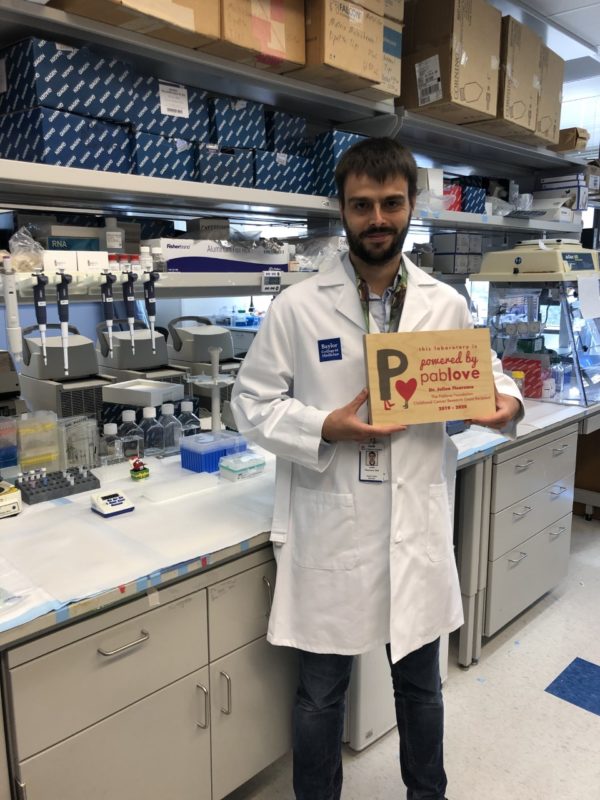Julien Fleurence PhD, PharmD
Baylor College of Medicine
T cells expressing a next-generation glypican-3-specific CAR incorporating IL-7 receptor signaling to cure pediatric liver cancers

Dr. Fleurence is a researcher pharmacist at Baylor College of Medicine. Under the mentorship of Dr. Andras Heczey, a past Powered by Pablove grantee, he is exploring new therapy for pediatric liver cancer using the body’s own immune system.
In Dr. Fleurence’s own words:
Hepatoblastoma and hepatocellular carcinoma are the most common liver cancers in children. If the tumors cannot be completely resected, conventional therapies have limited effectiveness and significant side effects. Thus, there is an urgent need to promote effective non-surgical approaches. Here, our aim is to develop a new immunotherapy by genetically engineering the patient’s immune system to eliminate cancer. We are targeting the Glypican-3 (GPC3) that is expressed in several pediatric liver cancers and not expressed in mature, healthy tissues.
Our lab has previously developed a genetic engineering strategy to redirect immune cells to GPC3 and demonstrated antitumor responses in preclinical model of liver cancer. In the clinical setting, genetically engineered immune cells produce robust antitumor responses if they can expand and persist in the patients for a long time. To maximize the expansion potential of GPC3-redirected immune cells, we develop a novel genetic engineering approach with the design of a next generation chimeric antigen receptor (next gen GPC3-CAR), a molecule which redirect the immune cells to cancer cells. Our preliminary results showed that next gen GPC3-CAR efficiently eliminated tumor cells and persisted longer than previous GPC3-CAR cells in vitro. We will now systematically examine this next gen GPC3-CAR in preclinical models of liver cancer. Our results should provide justification for further clinical development.